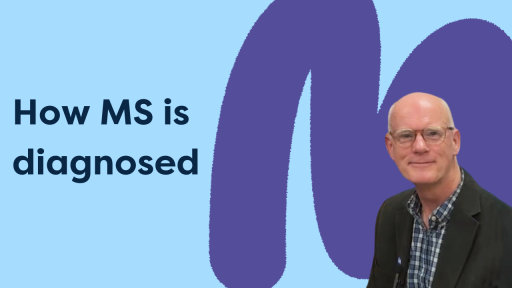ECTRIMS (European Committee for Treatment and Research in Multiple Sclerosis) is the world’s largest annual meeting for researchers, clinicians and healthcare providers working in multiple sclerosis. This year’s meeting is taking place in Barcelona from 24–26 September. There will be more than 1,800 presentations and posters across the three days, representing ongoing research and education touching all aspects of MS.
A study of Ocrevus in people with primary progressive MS found that the drug slowed worsening of hand and arm symptoms and also overall progression. 1,013 participants received either Ocrevus or an inactive placebo. Results show that fewer people in the Ocrevus group experienced progression as measured by EDSS (23.0% v 30.8%) and less worsening in hand function measured by the 9-Hole Peg Test (16.7% v 24.9%).
Read more about this research
Read more about the thinking that went in to setting up this trial
There are differences in how MS affects women before and after the menopause. A study compared 298 premenopausal women, 300 postmenopausal women, and 265 age-matched men. Symptoms affecting the optic nerve were more common as a first symptom in premenopausal women, while spinal cord symptoms were more common in postmenopausal women.
Women after menopause were more likely to have other health conditions (comorbidities), such as high blood pressure and cardiovascular issues. Women before menopause were more likely to have depression and anxiety.
The initial symptoms and comorbidities in men were similar to those seen in postmenopausal women.
Read more about this research
Learn more about menopause and MS
Eating ultra-processed foods was linked to more frequent relapses and lesions seen on MRI scans in people with early MS. Ultra-processed foods generally include products containing additives such as preservatives, sweeteners and colourants and little or no whole food. A study followed 451 people with clinically isolated syndrome for up to five years. People who ate the most ultra-processed foods had nearly a third more relapses than those who ate the least.
Read more about this research
Learn more about diet and MS
Early findings from a trial in Cambridge of a combination of a diabetes drug and an antihistamine suggest that this may help to repair MS damage to the myelin coating around nerves.
The study involves 70 people with relapsing MS who received either the combination of metformin and clemastine or an inactive placebo for six months. Researchers measured the speed of signals along the optic nerve using the visual evoked potential test. People in the placebo group showed slightly slower speeds over the course of the study, suggesting damage to myelin on the nerve. The speed of messages in the treatment group remained the same. Despite the indication that the drugs were working, there was no improvement in the participants’ vision or disability. While this trial shows that myelin repair is possible, more research is needed before a treatment can be made available.
Read more about this research
A member of the Cambridge team talks about remyelination research
Whether it is safe for people aged over 50 to stop disease modifying treatment has been a topic in neurology in recent years. A Spanish study looked at data from 563 people aged over 50 who were initially taking one of the disease modifying drugs. One in five of the participants stopped their treatment. While MRI data from this discontinuation group showed new inflammation (lesion), none of the participants had a relapse or an increase in progression. People aged over 60 had less new inflammation that those aged 50–60. The researchers warn that the number of people in this study was quite small and that despite the lack of relapses in the discontinuation group, continued monitoring is required.
Read more about this research
Learn more about how ageing can affect your MS


